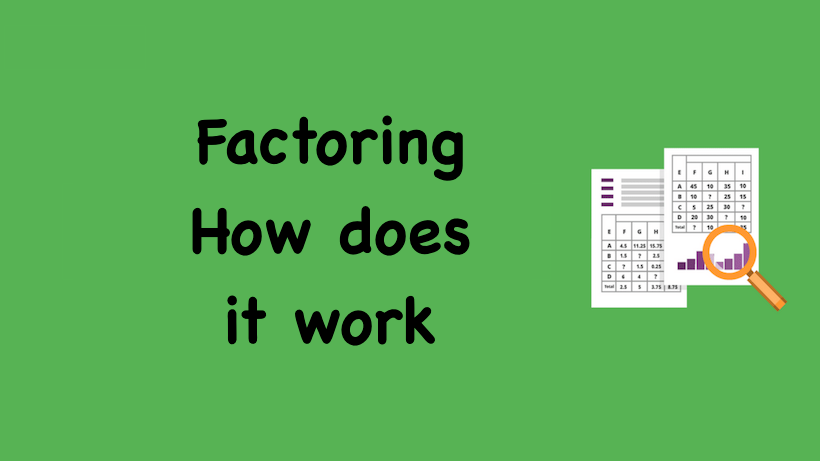Factoring How does it work – Factoring is an activity in receivables management system which facilitates a company to get the cash immediately on real time basis.
If you like this article then please like us on Facebook so that you can get our updates in future ……….and subscribe to our mailing list ” freely “
Factoring How does it work:
Factoring is an activity where a business sells its receivables to third party (factor) at against which the factor pays certain portion say 80 to 90% of the value of the receivables immediately without waiting for a period of actual credit period granted to the customers. He will reserve the balance amount till the Realisation of receivables.
Must Read – Various Types of Lease
The amount granted by the factor depends on
(1) Industry :
If the industry in which company is engaged is of such kind where the Realisation of receivables doesn’t take considerably much time then the factor may provide up to 90% of the value of the receivables and advances at the time of purchasing them.
(2) Credit worthiness of customers :
Factor considers the credit worthiness and repayment history of the customers of the business entity to examine the probability of recovery from the receivables. If the credit history is not good then it certainly cause to lower the amount to be granted at the time of purchasing.
After realising the debts from the receivables and advances the factor will release the reserved amount by deducting certain portion towards his commission / factoring charges.
Must Read – Lease A comprehensive Discussion
How it happens ?
- (1) A business serves its clients or supply its products to customers.
- (2) Gets the invoice of sale which we can refer as receivables against a specified credit period.
- (3) Company approaches the factor and sells the receivables.
- (4) Factor pays the company certain % of the value of the receivables (80% to 90%) immediately. And reserves the balance.
- (5) At the time maturity factor collects the debts from the customers in respect of the receivables he bought.
- (6) Factor pays the company the reserved amount after deducting certain amount as his charges.
Must Read – CA Articleship Registration
Types of Factoring :
(1) Notified factoring :
Here, the customer is given prior intimation about the assignment of debt
to a factor, also directed to make payments to the factor instead of to the company. This is invariably done by the company at the time of giving invoices and following for the payment.
(2) Non notified factoring :
No prior intimation is given to the debtors / customers about the factoring assignment.
This kind of Factoring is common when there’s a probability that the customer may break the payment terms and factor is willing to accept the risk of collecting the amount against invoices sold to him.
Must Read – Dormant Company
(3) With recourse factoring :
Here the company itself will carry the risk of non collection from the receivables. Here the factor is no way responsible for the bad debts.
(4) Without recourse factoring :
Here the factor takes the responsibility for bad debts. If any bad debts result subsequently then the company is no way responsible for that.
Must Read – Bridge Finance
(5) Bank participation factoring :
In this the company creates a floating charge on the
factoring reserves in favour of banks and borrow against these reserves.
(6) Export factoring :
Export factoring provides immediate financing against your export receivables. Financing can be availed in Rupees or in foreign currency. Factor buys the foreign receivables.
Must Read – Venture capital finance
